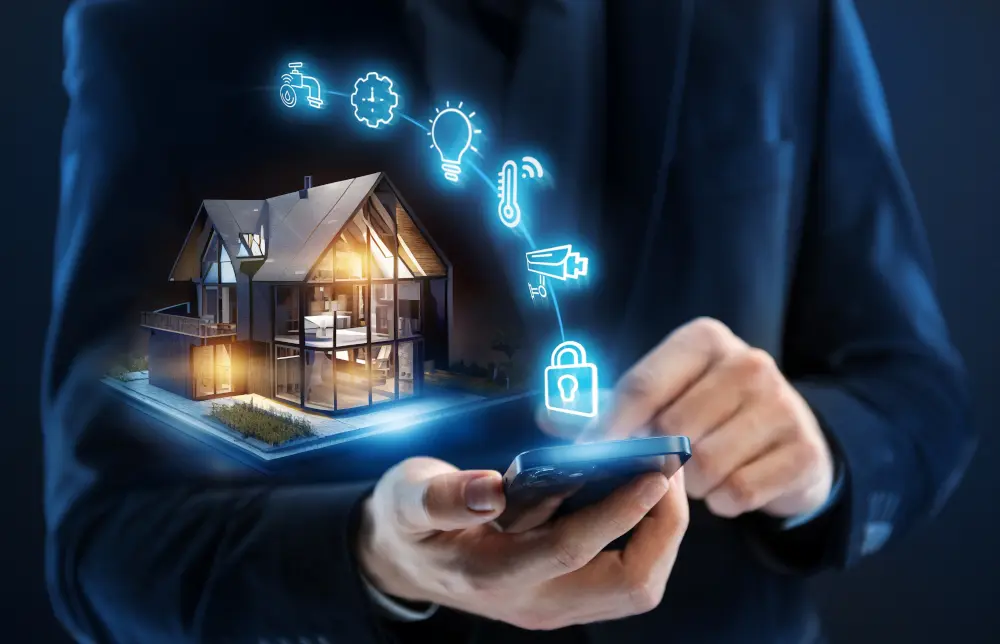Ensuring Home Security While Traveling – The Role of Home Automation Technology
In today’s interconnected world, where travel is a frequent part of many people’s lives, ensuring the security of your home while you’re away is paramount. Fortunately, advancements in technology have revolutionised home security through the advent of home automation systems. These systems not only provide peace of mind but also offer comprehensive monitoring and control of your home’s security features remotely.
To ensure your system is installed and working correctly, it’s advisable to enlist the expertise of a home automation professional. This article delves into the benefits and practical applications of using home automation technology to safeguard your home while you travel.
Table of Contents
Toggle
Understanding Home Automation Technology
Home automation technology encompasses a range of smart devices and systems designed to automate and control household functions and appliances. When it comes to security, these technologies typically include:
- Security Cameras: High-definition cameras equipped with motion detection capabilities that provide real-time video surveillance of your property.
- Motion Sensors: Sensors placed strategically around the home to detect movement and trigger alerts or actions, such as activating lights or sounding alarms.
- Smart Locks: Electronic locks that can be remotely controlled via smartphone apps, allowing you to lock or unlock doors from anywhere in the world.
- Smart Alarms: Alarms that notify you and/or emergency services in the event of unauthorised entry, fire, or other emergencies.
- Remote Access Control: The ability to monitor, manage, and adjust these devices remotely through an internet-connected device, such as a smartphone or tablet.
Benefits of Using Home Automation for Home Security
1. Continuous Monitoring and Alerts
One of the primary advantages of home automation technology is its ability to provide continuous monitoring of your home. Whether you’re on a business trip or vacation, you can access live camera feeds, receive alerts for suspicious activities detected by motion sensors, and monitor the status of doors and windows through smart locks. This real-time information empowers homeowners to respond promptly to potential security threats.
2. Remote Access and Control
Remote access capabilities allow homeowners to manage their home’s security settings from virtually anywhere. Forgot to arm the security system before leaving? With a few taps on your smartphone, you can activate it remotely. Likewise, if a family member needs access while you’re away, you can unlock the door for them using the smart lock app. This flexibility and control ensure that your home remains secure, even when you’re not physically present.
3. Customisable Security Settings
Home automation systems offer customisable security settings tailored to your preferences and lifestyle. For instance, you can schedule lights to turn on and off at specific times to simulate occupancy, deterring potential intruders.
Additionally, you can set alerts for unusual activities, such as unexpected door openings or motion detected in restricted areas. These personalised settings enhance security measures and provide a layer of protection that adapts to your needs.
4. Integration with Other Smart Devices
Many home automation systems integrate seamlessly with other smart devices, such as smoke detectors, carbon monoxide detectors, and thermostats. This interconnectedness allows for a holistic approach to home security and safety. For example, in the event of a fire detected by a smoke detector, the system can automatically unlock doors, turn on lights, and alert emergency services, ensuring a swift response to emergencies.
5. Enhanced Safety Features
Advanced home automation systems often include additional safety features, such as video doorbells with two-way audio. This feature enables you to see and communicate with visitors at your doorstep from anywhere, whether it’s a delivery person or a potential intruder. The ability to interact remotely gives homeowners greater control over access to their property and enhances overall security.
Practical Tips for Using Home Automation Technology Effectively
1. Invest in Reliable Equipment
Choose reputable brands and invest in high-quality home automation equipment that offers robust security features and reliable performance. Ensure that the devices use encrypted communication protocols to safeguard against hacking and unauthorised access.
2. Secure Your Network
Protect your home automation system by securing your home Wi-Fi network with a strong password and encryption. Regularly update firmware and software to patch vulnerabilities and maintain optimal security levels. Consider using a virtual private network (VPN) for an added layer of protection when accessing your home system remotely.
3. Notify Trusted Individuals
Inform trusted neighbours, friends, or family members about your travel plans and provide them with access to your home automation system. They can check on your property periodically and respond to alerts or emergencies in your absence.
4. Test and Familiarise Yourself
Before departing on your trip, conduct a comprehensive test of your home automation system to ensure all devices are functioning correctly. Familiarise yourself with the system’s features, settings, and troubleshooting procedures to address any issues promptly. This preparation minimises the risk of unexpected disruptions in home security while you’re away.
Conclusion
Home automation technology has revolutionised the way homeowners protect and monitor their properties, particularly when travelling. By leveraging smart devices, remote access capabilities, and customisable security settings, individuals can enhance home security and enjoy peace of mind knowing their homes are well-protected. Investing in reliable equipment, securing your network, and familiarising yourself with the system are essential steps to maximise the benefits of home automation technology.
With these advancements, safeguarding your home no longer requires physical presence but rather strategic use of technology and proactive security measures. Embrace the convenience and security that home automation offers, ensuring your home remains safe and secure whether you’re across town or across the globe.


